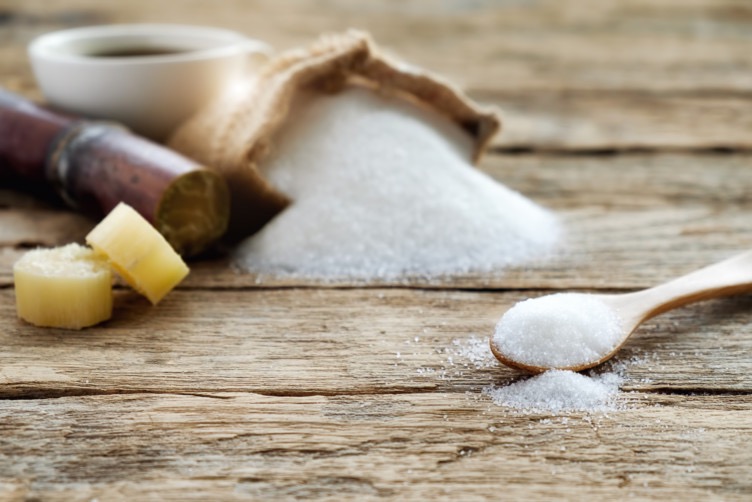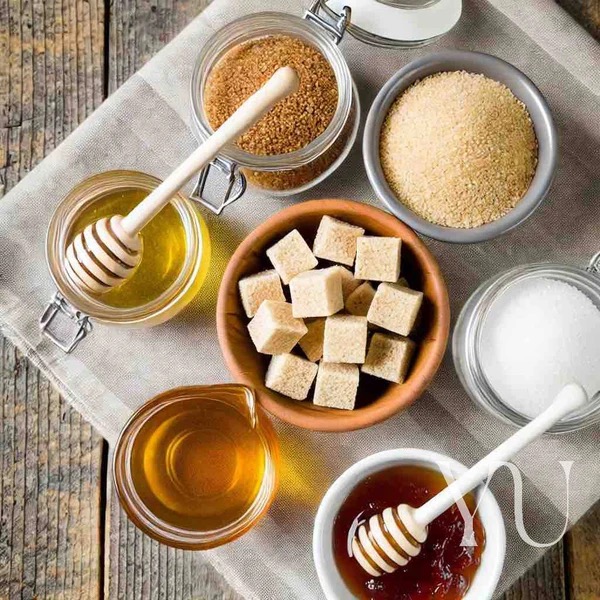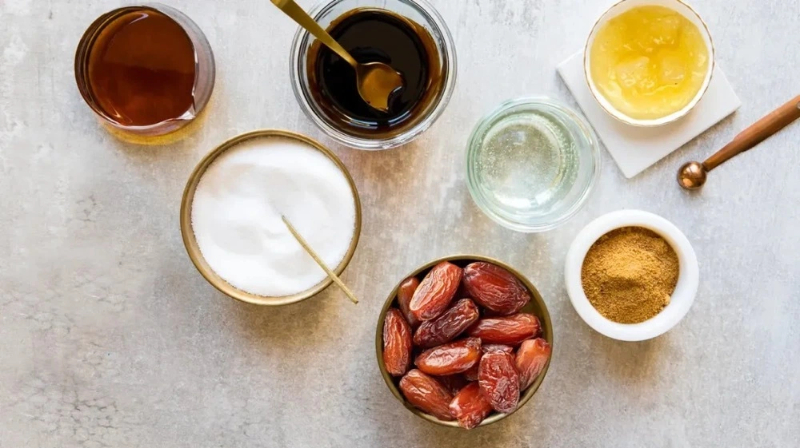Views: 222 Author: Sara Publish Time: 2025-09-12 Origin: Site








Content Menu
● Understanding Zero Calorie Sweeteners
● Popular Zero Calorie Sweeteners and Health Insights
>> Stevia: The Natural Sweetness Hero
>> Monk Fruit Extract: The Antioxidant Sweetener
>> Erythritol: The Sugar Alcohol
>> Sucralose: The Synthetic Sweetener
● Benefits of Zero Calorie Sweeteners
● Potential Risks and Considerations
● Recent Scientific Findings on Zero Calorie Sweeteners
● Cognitive Decline and Brain Health
● Appetite Regulation and Brain Responses
● Cardiovascular Health Concerns
● Balancing Benefits and Risks
● Recommendations for Consumption
● FAQ
>> 1. What zero calorie sweeteners are best for people with diabetes?
>> 2. Can zero calorie sweeteners help with weight loss?
>> 3. Are natural zero calorie sweeteners safer than artificial ones?
>> 4. Do zero calorie sweeteners affect brain health?
>> 5. Is daily consumption of zero calorie sweeteners safe?
In the quest for healthier diets and weight management, zero-calorie sweeteners have gained immense popularity as sugar substitutes. They offer the sweetness we crave without the calories that contribute to weight gain and other health issues. But with a variety of zero-calorie sweeteners available in the market, the question arises — which is the healthiest zero-calorie sweetener? This article explores the most popular zero-calorie sweeteners, their benefits, potential risks, and what science tells us about their effects on our health.

Zero-calorie sweeteners, also called non-nutritive or artificial sweeteners, provide sweetness without the calories found in sugar. Some are derived from natural sources, while others are synthetically produced. Common zero-calorie sweeteners include Stevia, Monk Fruit extract, Erythritol, Sucralose, Aspartame, Saccharin, and Allulose.
These sweeteners stimulate the sweet receptors on the tongue without contributing significant energy to the body. Because they are intensely sweet—often hundreds of times sweeter than sugar—only a small amount is needed to achieve the desired sweetness.
Stevia is a plant-based sweetener extracted from the leaves of the Stevia rebaudiana plant. It is about 200 to 300 times sweeter than sugar and contains zero calories.
- Health Benefits: Stevia has been shown to help lower blood pressure and improve insulin sensitivity, making it beneficial for individuals with hypertension and diabetes. It also promotes gut microbiome diversity, which is essential for overall health.
- Usage: Widely used in beverages, cooking, and baking.
- Taste Note: Some people perceive a slight aftertaste, but many find it acceptable.
Monk fruit extract is another natural zero-calorie sweetener derived from the fruit of Siraitia grosvenorii.
- Health Benefits: High in antioxidants and may have anti-inflammatory and anti-cancer properties.
- Taste: Offers a clean, sweet flavor without bitterness.
- Applications: Used in drinks, desserts, and food products for a natural sweetening effect.
Erythritol is a sugar alcohol naturally found in some fruits and fermented foods.
- Calorie Content: Almost zero calories (0.24 calories per gram).
- Health Effects: Does not raise blood sugar or insulin levels, making it safe for diabetics. It also supports oral health by preventing tooth decay.
- Digestive Note: Large amounts may cause digestive discomfort in sensitive individuals.
Allulose is a rare sugar found in small quantities in foods like figs and raisins.
- Calorie Content: About 0.2 calories per gram (very low).
- Health Benefits: Has minimal impact on blood glucose and insulin.
- Taste: Very similar to regular sugar, making it ideal for baking and cooking.
- Side Effects: Excessive intake could cause mild gastrointestinal issues.
Sucralose, sold under the brand name Splenda, is a common artificial sweetener.
- Calorie Content: Zero calories.
- Stability: Heat stable, suitable for baking.
- Concerns: Some studies suggest it may negatively affect gut bacteria, but it is considered safe by regulatory agencies.
Aspartame and neotame are widely used but debated sweeteners. Aspartame has been controversial over safety concerns, though approved by FDA. Saccharin, another old artificial sweetener, also remains available with some consumer skepticism.

- Weight Management: They help reduce calorie intake, supporting weight loss or maintenance.
- Blood Sugar Control: Beneficial for people with diabetes by preventing blood sugar spikes.
- Dental Health: Unlike sugar, they do not cause tooth decay.
- Versatility: Used in a variety of foods and beverages.
- Excessive consumption may disrupt gut microbiota.
- Some sweeteners may trigger increased craving for sweets.
- Individuals' responses vary; moderation is key.
- Research is ongoing regarding long-term effects.
While zero-calorie sweeteners offer apparent benefits, cutting-edge research from 2025 has revealed important insights and concerns related to their long-term use.
A large longitudinal study involving over 12,000 adults tracked consumption of seven common sweeteners including aspartame, saccharin, acesulfame-K, erythritol, sorbitol, xylitol and tagatose, assessing cognitive functions over eight years. The study found that individuals consuming the highest amounts of artificial sweeteners exhibited a significantly faster decline in memory, verbal fluency, and overall cognition compared to those consuming the lowest amounts. The decline correlated to approximately 1.6 years of additional brain aging. This effect was particularly pronounced in people under 60 and individuals with diabetes. Though causality cannot be definitively established, these findings raise concerns about potential cognitive risks related to high intake of some zero-calorie sweeteners.
Another recent study examined the effects of sucralose consumption on brain appetite regulation. Despite being calorie-free, sucralose was shown to increase activity in the hypothalamus, the brain's center controlling hunger and food intake. Consuming sucralose increased feelings of hunger by about 17%, particularly in obese individuals, and altered decision-making areas associated with food motivation and risk assessment. This suggests that artificial sweeteners may send misleading sweetness signals to the brain without delivering calories, potentially leading to increased appetite and weight gain despite their zero-calorie nature.
Erythritol, often marketed as a healthy natural sugar alcohol, has been linked in recent studies to negative effects on vascular function. High levels of erythritol in the bloodstream have been associated with impaired blood vessel health, which could increase the risk of cardiovascular events. While erythritol remains popular due to its sugar-like taste and near-zero calories, caution is recommended especially for individuals with heart disease risks.
Given the evolving research, selecting the healthiest zero-calorie sweetener involves weighing their metabolic benefits with emerging evidence on neurological and cardiovascular impacts. Natural sweeteners such as Stevia and Monk Fruit continue to have strong safety profiles with additional antioxidant and anti-inflammatory benefits. Sugar alcohols like erythritol offer good blood sugar control but with some cardiovascular caveats. Synthetic sweeteners including sucralose and aspartame are widely used but may affect brain appetite control and cognition in high amounts.
- Use natural zero-calorie sweeteners like Stevia or Monk Fruit as first choices when possible.
- Moderate consumption of sugar alcohols such as erythritol, noting individual tolerance.
- Limit intake of synthetic artificial sweeteners like sucralose and aspartame, especially for daily habitual use.
- Stay informed on new research and guidelines as scientific understanding develops.
- Combine sweeteners with a balanced diet and healthy lifestyle for best overall outcomes.
Among the plethora of zero-calorie sweeteners available, natural sweeteners like Stevia and Monk Fruit stand out as the healthiest options due to their natural origin and additional health advantages such as antioxidant properties and improved insulin response. Sugar alcohols like Erythritol offer good alternatives but warrant cautious use because of potential cardiovascular concerns. Synthetic sweeteners like Sucralose and Aspartame, while approved and widely used, have emerging evidence linking them to altered brain appetite signaling and cognitive decline when consumed in high amounts over time. An informed and moderate approach to sweetener choice paired with a wholesome diet is key to leveraging their benefits while minimizing potential risks.

Natural zero calorie sweeteners such as Stevia, Monk Fruit, and sugar alcohols like Erythritol are excellent options. They have minimal impact on blood glucose levels and may improve insulin sensitivity.
Yes, they reduce calorie intake compared to sugar, aiding weight management. However, some sweeteners may increase appetite or cravings, so mindful consumption is essential.
Generally, natural sweeteners like Stevia and Monk Fruit tend to have fewer safety concerns and additional health benefits compared to synthetic sweeteners such as Sucralose and Aspartame.
Recent studies suggest that high consumption of certain artificial sweeteners may be associated with cognitive decline and altered brain appetite regulation, but more research is needed to understand causality.
Moderate consumption within regulatory guidelines is considered safe. It's advisable to vary sweetener types and integrate them into a balanced diet.
[1](https://www.cnn.com/2025/09/03/health/artificial-sweetener-cognition-wellness)
[2](https://www.dzd-ev.de/en/press/press-releases/press-releases-2025/artificial-sweeteners-stimulate-hunger-signals-in-the-bra)
[3](https://www.today.com/health/diet-fitness/artificial-sweeteners-cognitive-decline-study-rcna228871)
[4](https://pubmed.ncbi.nlm.nih.gov/40902134/)
[5](https://www.sciencedaily.com/releases/2025/09/250904103923.htm)
[6](https://www.neurology.org/doi/10.1212/WNL.0000000000214023)
[7](https://www.aan.com/PressRoom/Home/PressRelease/5281)
[8](https://keck.usc.edu/news/calorie-free-sweeteners-can-disrupt-the-brains-appetite-signals/)
[9](https://www.physiology.org/detail/news/2025/04/25/popular-sugar-substitute-may-harm-brain-and-heart-health)
Top Fructose Crystalline Manufacturers And Suppliers in Brazil
Top Fructose Crystalline Manufacturers And Suppliers in Belgium
Top Fructose Crystalline Manufacturers And Suppliers in Austria
Top Fructose Crystalline Manufacturers And Suppliers in Australia
Top Fructose Crystalline Manufacturers And Suppliers in Argentina
